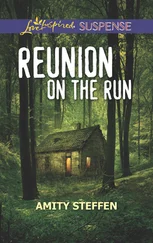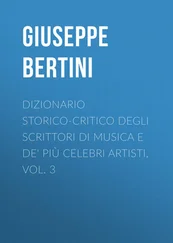Other times we’d sat like this, by the bed all night, gagged with worry, measuring that inconceivable interval between the call to the pediatrician and the waiting. Those infant fevers. How hot she used to get. We were sure she’d be a pile of ashes by morning. I remember the drowsy doctor, himself due to the breakfast table within an hour or two, telling us over the telephone to be ready to take her to the hospital if her condition worsened. Throughout the stubborn night we would wait for things to worsen, a night-light for our vigil. And stalking the corners of our quiet sickbed conversations were all the little children who’d tiptoed past their parents on nights like these, centuries ago, all the little invisible souls, running away, laughing. And yet we never lost her.
There was a knock on the door.
“Hey, Dad.”
I looked up to see a petite, Slavic-looking woman. We shook hands. Her bones seemed as hollow as a bird’s.
“Doctor,” I said, standing woozily, upsetting the empty coffee cup I’d left on Meadow’s swivel tray. “Come in, come in. I’m so glad to see you. Thank you so much. Thank God for you and your hospital.”
The doctor’s face assumed a troubled look. “I’m really glad you made it to us. But we’re not in the clear.”
The doctor frowned at her chart, and then we sat, the doctor on one side of sleeping Meadow and myself on the other. For a moment we both examined her placid face, my eyes flickering between her face and the doctor’s.
“We had to give your daughter some heavy stuff to get her breathing again,” the doctor said. “Not just the intravenous drug — the magnesium sulfate — also, we gave her ketamine, a dissociative anesthetic. We couldn’t hesitate. These drugs prevent respiratory arrest, but they are brutal drugs. Hard on a two-hundred-pound adult. As in everything, Dad, there’s a corollary. In pediatrics, you can’t push too hard. But you have to push hard enough.”
“I understand,” I said. “God, you look so young for a doctor.”
The doctor smiled, again with the woeful look. “OK,” she said. “I need to know why you didn’t come in earlier.”
I paused. “Earlier?”
“You said — you told us when you first came in — that she has suffered previous asthmatic attacks. You know — I’m sure you know — how serious her illness is? That thousands of children die every year from asthmatic suffocation?”
“You won’t believe this,” I said. “But we lost her inhaler in the Common. In the lagoon . Today.”
“You mean yesterday.”
“Yesterday. Slipped out of her backpack. Into the lagoon.”
“Goodness.”
“To be honest, she hasn’t had an attack that severe since — since never. At least, I’ve never seen it like that.”
“Well, that’s because of her inhaler. Because it saves her life when you use it. And sure, it’s no crime to lose it. But you cannot wait to get her help. You have to get help immediately.”
“I hear you.” I nodded. “I failed her.”
“I’m not saying that.”
“But I did fail her. I’m saying that.”
“Listen. I have kids, too. I’ve made mistakes. I hold no one to an impossible standard. But you and me are lucky because we get another chance. Some kids don’t get better. Intervention can fail.”
My eyes drifted toward the sleeping boy who shared our room.
“So. She’ll be all right?”
“Yes, she will. But she needs to stabilize.”
Just then, Meadow yawned.
“Look.” I laughed. “We’re boring her.”
“Ha,” the doctor said. “That’s a great sign. She’s still sleeping, but more lightly.”
“So we’ll be able to leave soon? I personally get really antsy in hospitals. And her mother would really love to have her back home as soon as possible.”
“We’ll see. Get some sleep, Dad. This place really hops in the morning.”
As I watched Meadow stir and her sleep get lighter and I saw what I thought was the end in sight, I said to myself, I will never sleep I will never fall asleep again , and yet somehow I fell asleep. I dreamed explicitly. I was walking away. Right up Storrow Drive and into the woods. I gave up on all this. I slipped my shape. I was made new. No one ever saw me again.
The squeegee of officious shoes awakened me. Someone had entered the room while I was dozing. I lifted the tonnage of my skull and prepared a smile. Who was it but my friend the policeman. I could see him better now, in the light of day, his close-shaven face shining. I saw that he was about my age. As he offered a few unpoetic comments, I heard in his voice that familiar Dorchester twang, which I’d pinpoint at somewhere around, say, the corner of Dorchester and Victoria, and I wondered if we knew each other when we were kids. I wondered if he was someone with whom I sat beside some Madonna statuette eating salted pips. Someone who shared his freestanding basketball hoop with me when no one else was around. Someone with whom I traded racial insults (Mick! Nazi!). Now he was saying how he was glad everything came out OK. And I was thanking him for saving my daughter’s life. And meaning it. Because I was thinking, yes, I do get another chance, it is not too late, and today — today — I will visit that old house on Savin Hill Road and I will climb those well-worn stairs, and see my father, and show him his granddaughter, and something will be put right, something will be finished…
“Can we step out into the hall?” the cop asked.
“Sure,” I said, not moving. “Everything all right?”
“I just need to write up a report. I’ve got to account for my time.”
“Sure.” I smiled at him, trying to read his expression. Both sincere and opaque.
“I don’t think there’s any trouble here,” he clarified. “I don’t think you’ve done anything wrong. This is protocol.”
“Well, sure.” Now I stood. “I completely understand.”
A nurse in pastel pink came to the door with a tray of apple juice and soda crackers and peered at Meadow. “Anybody awake yet?”
“Not yet,” I said. “Is that normal?”
We traded places at the bedside.
“She’s gonna be fine,” said the nurse. She flipped through the clipboard at the foot of the bed. “She’ll rouse soon. It’s just time to check her vitals.”
I left the room with a foreboding that surprised me.
The cop and I stepped into the hall. I explained it to him like this: My daughter and I had taken the bus down from Conway the previous morning, just a father-and-daughter Saturday trip into Boston for the sights (swan boats, roasted cashews, the chandelier at the Copley, etc., etc.), and had lost her inhaler in the lagoon, and maybe it was petting the horses that kicked up her asthma. But I noticed that after several minutes of him writing up his report with an awkward leftie scrawl, he had stopped writing and was listening to me with a kind of strained interest. He asked where was the girl’s mother and I said she was back in Conway with our other little one, waiting for the two of us to be discharged. We were both shaken up over what happened, I told him, but we knew that Mass General was one of the best hospitals in the world and besides we were never going to go anywhere without her inhaler again. And then he finally asked for my name and I put out my hand and said, “John Torraine.” We shook hands. “And your daughter is?” “Jessie. Jessie. Short for Jessica. But she hates being called Jessica,” I added. Then the cop told me he was all set but that I was eventually going to have to fill out some paperwork for the hospital. I didn’t have insurance, I said, but you could bet I was good for it. He said I could work that end out with the hospital.
Читать дальше












